October 18, 2016
Stress and overwork in the City of London remains endemic, finds research 0
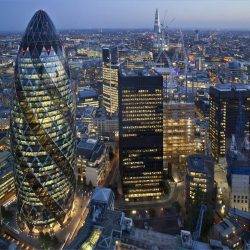 The financial services industry has never been known as a ‘touchy-feeling’ environment, and despite efforts to raise the issue of mental ill health at work, appears resolutely resistant to cultural change. This perception is reinforced by a new piece of research which claims that rising stress in the City is driving more than two out of three investment bank staff to consider quitting their job – but employees believe talking about stress or mental health issues to management will damage their careers. In a study by MetLife among decision makers at financial institutions two out of five (40 percent) think their job is extremely stressful with 67 percent considering quitting their jobs in the next year if stress levels do not improve. However, despite the impact of stress on their work and home lives, around 70 percent believe that admitting to suffering from anxiety or mental health issues will damage their career prospects and there is a reluctance to offer staff more flexible hours to help reduce the strain.
The financial services industry has never been known as a ‘touchy-feeling’ environment, and despite efforts to raise the issue of mental ill health at work, appears resolutely resistant to cultural change. This perception is reinforced by a new piece of research which claims that rising stress in the City is driving more than two out of three investment bank staff to consider quitting their job – but employees believe talking about stress or mental health issues to management will damage their careers. In a study by MetLife among decision makers at financial institutions two out of five (40 percent) think their job is extremely stressful with 67 percent considering quitting their jobs in the next year if stress levels do not improve. However, despite the impact of stress on their work and home lives, around 70 percent believe that admitting to suffering from anxiety or mental health issues will damage their career prospects and there is a reluctance to offer staff more flexible hours to help reduce the strain.




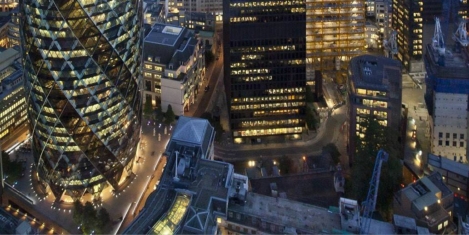


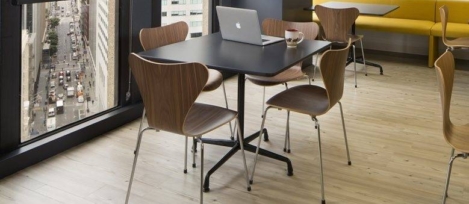
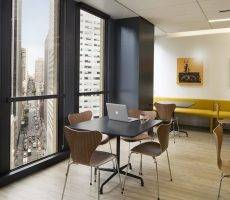







 A ‘stiff upper lip’ attitude towards wellness by UK bosses needs to change in order to advance employee wellbeing, argues a survey by Bupa. It is business leaders who are the key to overcoming the challenges facing employees’ health and wellbeing, it claims. The vast majority (94 percent) of those questioned believe there will be significant change in the employer-employee relationship in the next ten years. 91 percent of business leaders agree that technology will continue to impact the wellbeing of their workforce over the next decade and 71 percent agree the standard 9am-5pm working day is a thing of the past. Seven in ten (68 percent) noted a ‘stiff upper lip attitude’ at executive level, creating barriers to conversations about wellbeing, and three fifths (62 percent) of leaders think they need to show that they don’t suffer from ill health.
A ‘stiff upper lip’ attitude towards wellness by UK bosses needs to change in order to advance employee wellbeing, argues a survey by Bupa. It is business leaders who are the key to overcoming the challenges facing employees’ health and wellbeing, it claims. The vast majority (94 percent) of those questioned believe there will be significant change in the employer-employee relationship in the next ten years. 91 percent of business leaders agree that technology will continue to impact the wellbeing of their workforce over the next decade and 71 percent agree the standard 9am-5pm working day is a thing of the past. Seven in ten (68 percent) noted a ‘stiff upper lip attitude’ at executive level, creating barriers to conversations about wellbeing, and three fifths (62 percent) of leaders think they need to show that they don’t suffer from ill health.
 Management behaviour is contributing to rising workplace stress levels with employees blaming their own bosses for adding to the pressures they feel, a new study of 1,200 people by MetLife claims. The study suggests that 69 percent of employees say that the behaviour of managers in their organisation has increased stress and that the rising stress is having a major impact on company performance. Around 45 percent of employees say that stress caused by management has led to staff in their organisation taking extended time off. This in turn increases costs and affects productivity as well as impacting other workers who take on an increased workload. Government data estimates that around 35 percent of all work-related ill-health is caused by stress and that stress accounts for 43 percent of all working days lost to ill-health – the equivalent of 9.9 million working days a year at an average of 23 days per case.
Management behaviour is contributing to rising workplace stress levels with employees blaming their own bosses for adding to the pressures they feel, a new study of 1,200 people by MetLife claims. The study suggests that 69 percent of employees say that the behaviour of managers in their organisation has increased stress and that the rising stress is having a major impact on company performance. Around 45 percent of employees say that stress caused by management has led to staff in their organisation taking extended time off. This in turn increases costs and affects productivity as well as impacting other workers who take on an increased workload. Government data estimates that around 35 percent of all work-related ill-health is caused by stress and that stress accounts for 43 percent of all working days lost to ill-health – the equivalent of 9.9 million working days a year at an average of 23 days per case.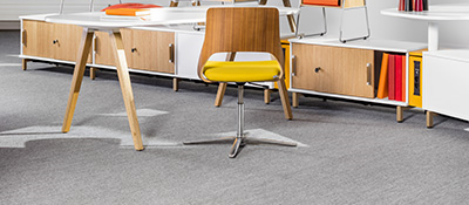
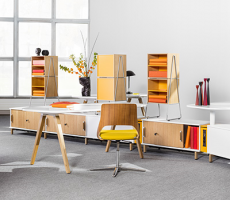 There is no doubt that the UK’s office based knowledge industry is facing a crisis in the form of a ‘wellbeing deficit’. Both the Confederation of British Industry (CBI) and Health and Safety Executive (HSE) have reported record levels of absenteeism, with the latter attributing 23.3 million lost working days to work-related ill-health, such as depression, stress, anxiety and musculoskeletal disorders. A great deal is already known about the causes of the key issues of employee stress and demotivation, but more work needs to be done to establish how organisations can meet their corporate goals with regard to these issues, whilst still engaging, motivating and nurturing their workforce. A significant body of published research has identified that a sense of ‘personal control’ can have a hugely positive impact on employee wellbeing, but how can we engender that control when it comes to creating a productive working environment?
There is no doubt that the UK’s office based knowledge industry is facing a crisis in the form of a ‘wellbeing deficit’. Both the Confederation of British Industry (CBI) and Health and Safety Executive (HSE) have reported record levels of absenteeism, with the latter attributing 23.3 million lost working days to work-related ill-health, such as depression, stress, anxiety and musculoskeletal disorders. A great deal is already known about the causes of the key issues of employee stress and demotivation, but more work needs to be done to establish how organisations can meet their corporate goals with regard to these issues, whilst still engaging, motivating and nurturing their workforce. A significant body of published research has identified that a sense of ‘personal control’ can have a hugely positive impact on employee wellbeing, but how can we engender that control when it comes to creating a productive working environment?











July 22, 2016
The people centric urge to personalise space helps firms to engage employees 0
by Paul Goodchild • Case studies, Comment, Wellbeing, Workplace design
(more…)